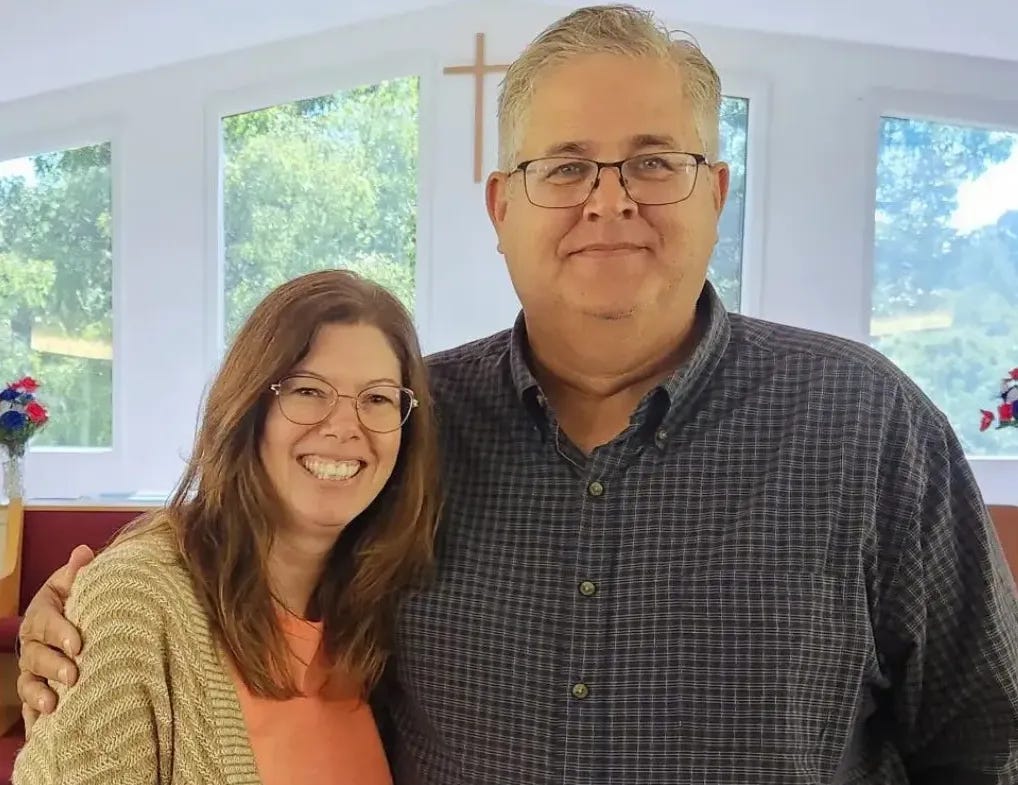You would’ve liked him. He shook your hand at the door. He called the preacher “pastor” and nodded through the sermons. He said grace at meals.
But when the Word was sown, his heart was stone. No root. No fruit. Just years of pretending. When he died, his family said he loved the Lord. But the soil remembered the truth.
Jesus told a story about that man.
At first, it feels harmless…just seed in the air. Then you realize it’s dividing everything it touches. The Parable of the Sower.
You’ll find it in Matthew 13, Mark 4, and Luke 8. One of only two parables told in all three Gospels—and the only one Jesus explains every single time. He doesn’t let us guess. He doesn’t leave it open-ended. He says: if you don’t get this parable, you won’t get any of them.
This one is the key.
This one draws a line.
This one is about the Word of God and how it breaks into human hear or doesn’t.
A Kingdom Comes in Seeds
Jesus does not describe the kingdom like an army or a throne. He likens it to something easily missed. A hand scattering seed. No fanfare. No control over where it lands. Just motion. Just sowing.
And then silence.
Because the seed has to do its work underground.
That’s how the kingdom works. Quiet. Subversive. Patient.
But the issue isn’t with the seed.
It’s with the soil.
Four Soils. Four Hearts. One Question.
How do you receive the Word?
Jesus isn’t asking if you’ve heard it. All four soils do. He’s not asking if you’ve been to church. All four could sit in the same pew. He’s asking what the Word does to you…and what you do with it.
Let’s walk the rows.
1. The Trampled Path: Where the Word Is Forgotten Before It Lands
The sower throws seed on the path. It lies there, exposed. Hard ground does not break. And birds circle.
Jesus says: this is the one who hears the Word, but Satan takes it before it takes root.
He comes to church, because he always has. Because his wife expects it. Because the kids are watching. But while the preacher pleads, his mind is far off. Lunch plans. Work stress. A grudge. A scroll through social media.
And the Word…alive, eternal, sharper than any sword…gets snatched before it cuts.
This isn’t innocence. It’s war. Satan waits in the rafters of some churches, talons ready.
Jesus doesn’t ask you if you liked the sermon. He asks: did it land?
Or did you leave just as you came?
2. The Shallow Soil: The Flame That Fizzles
Here, the seed falls on rocky ground. There’s just enough dirt to sprout. But no depth. And when the sun comes, the plant shrivels.
Jesus says: these are the ones who receive the Word with joy. Immediate. Loud. But they have no root. And when heat comes…trouble, questions, rejection…they fall away.
This is the youth camp testimony that wilts by fall semester. The emotional high that forgets obedience. The Christian who posts verses on Monday and folds on Friday.
They love the sound of truth, but not its demands. They’re moved by conviction, but never changed by it.
When the cost rises, they vanish.
They spring up fast. And die faster.
3. The Thorny Ground: Choked by Everything Else
The seed lands. It grows. But so do the thorns.
Jesus says: these are the ones who hear the Word, but the cares of the world, the deceitfulness of riches, and the desires for other things strangle it.
They are respectable. They are responsible. They agree with the sermons. They even tell others, “This church preaches the truth.”
But truth doesn’t rule them. Something else does.
Maybe it’s a business. Maybe a reputation. A secret indulgence. A future plan. A retirement account. An ambition no one else sees.
It doesn’t look evil. That’s the trick. But when it competes with the Word, it always wins.
These people sit close to the kingdom. Close enough to feel the warmth. But they never enter. Their hearts are divided.
And thorns don’t share.
4. The Good Soil: Where the Word Reproduces Itself
Finally, some seed lands deep.
It breaks the surface. It pushes down. And it produces something. Not just emotion. Not just appreciation. But fruit.
Thirtyfold. Sixty. One hundred.
You want to know if someone’s saved? Jesus doesn’t say, “Check their attendance.” He says, “Check their fruit.”
This is the woman who heard about repentance…and actually repented. The man who read about forgiveness…and gave it. The teenager who heard, “Take up your cross,” and laid something down.
The Word reproduces itself. What was once ink is now obedience. What was once preached is now practiced.
Not perfectly. But unmistakably.
You see it in their speech. You see it in their grief. You see it in the way they say sorry.
Most of all, you see it in their love…for Christ, for others, even for their enemies.
They are not what they were. That’s the mark.
That’s the miracle.
One Story. Four Endings.
Jesus doesn’t leave room for a middle ground.
Everyone hears the Word. But not everyone is changed by it.
So He asks you, plainly:
What is the Word doing in you?
If it is not changing you, it is judging you.
And if your heart is still hard, or shallow, or crowded, He is still speaking.
But the time to listen is not infinite.
What Now? A Church That Puts the Word at the Center
When we understand this, our priorities reorder.
In our personal lives, the Word must lead. Not podcasts. Not Instagram reels. Not Christian clichés. The Word. We must bend our schedules around it, not squeeze it between meetings.
Read it. Tremble at it. Obey it.
In our churches, the Word must reign. Not as garnish. As center.
Let the preaching be bold. Let the songs echo Scripture. Let the prayers bleed Bible.
Where the Word is central, the Spirit moves. Where it is sidelined, all we have is noise.
In our evangelism, we sow the Word. Not just stories. Not just slogans. Not just vibes. The pure, unfiltered Word.
Because only the Word can raise the dead.
But Remember: You Can’t Make Seeds Grow
You can scatter it. You can pray over it. But you can’t make it sprout.
That’s the work of God.
So we sow with tears. We speak with urgency. And we pray with hope.
Because in the end, the sower walks home with dirt on his hands and faith in his heart.
Not all the seed will grow. But some will.
And where it does, the harvest is eternal.
So take heed how you hear.
Because the Word still cuts. And the Word still saves.
Enjoying this content? If you’d like to support my work and help me create more Bible-centered resources like this devotion, consider buying me a coffee! Your support means the world and helps keep this ministry going.
🔥 Must-Read for Every Christian Leader 🔥 | ✝️ How to Win Souls Like Spurgeon
If you’ve ever wondered how to lead someone to Christ with clarity, urgency, and compassion, The Soul Winner by Charles Spurgeon is not optional—it’s essential. This book is a fire in your hands, lit by the Prince of Preachers himself, calling us back to our one business: soul-saving.
👉 Get The Soul Winner on Amazon
As an Amazon Associate, I earn from qualifying purchases.








Good word. Arguably the most important passage in the Bible.
Spot on message on Jesus' "Parable of the Sower", Pastor Bitterman (and you surely are NOT a "bitter man").
I have sat under the Bible teaching of several Biblical scholars, but your "Sower/Soil" message is the most profound in a powerful yet compassionate tone.
May HIS JOY permeate your life and ministry.
P.S. I found this message of yours through Thomas Kozubal's Substack to which I've subscribed.